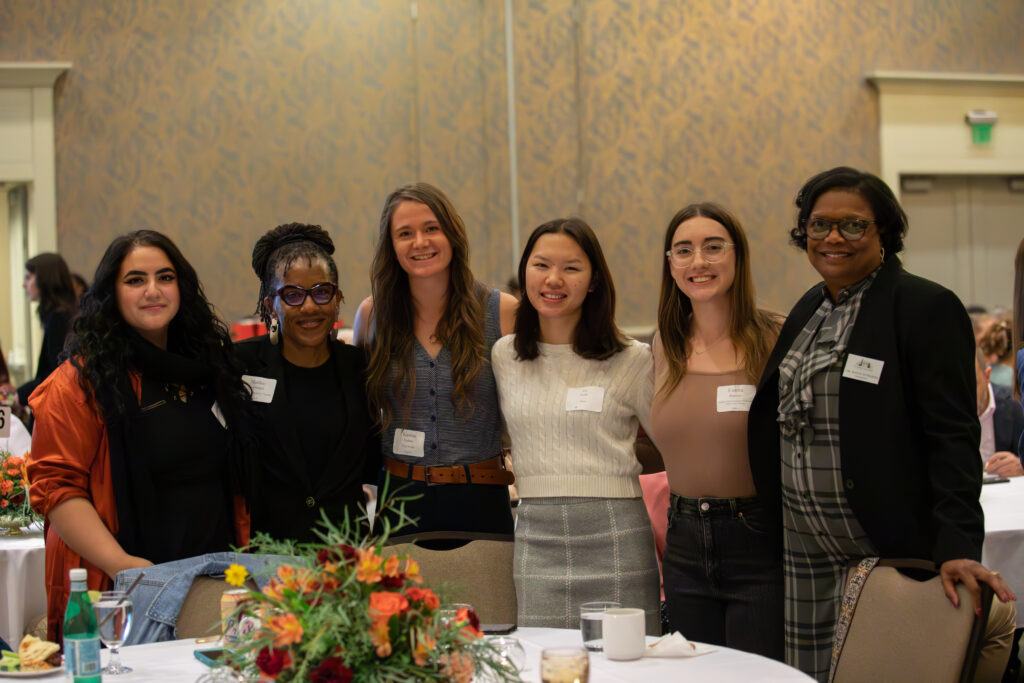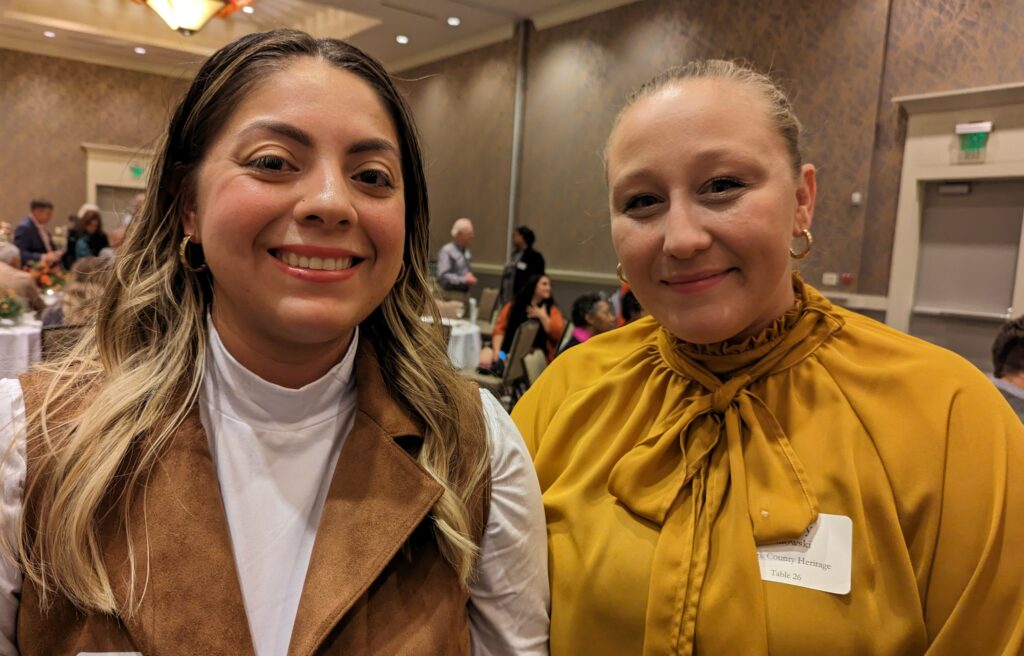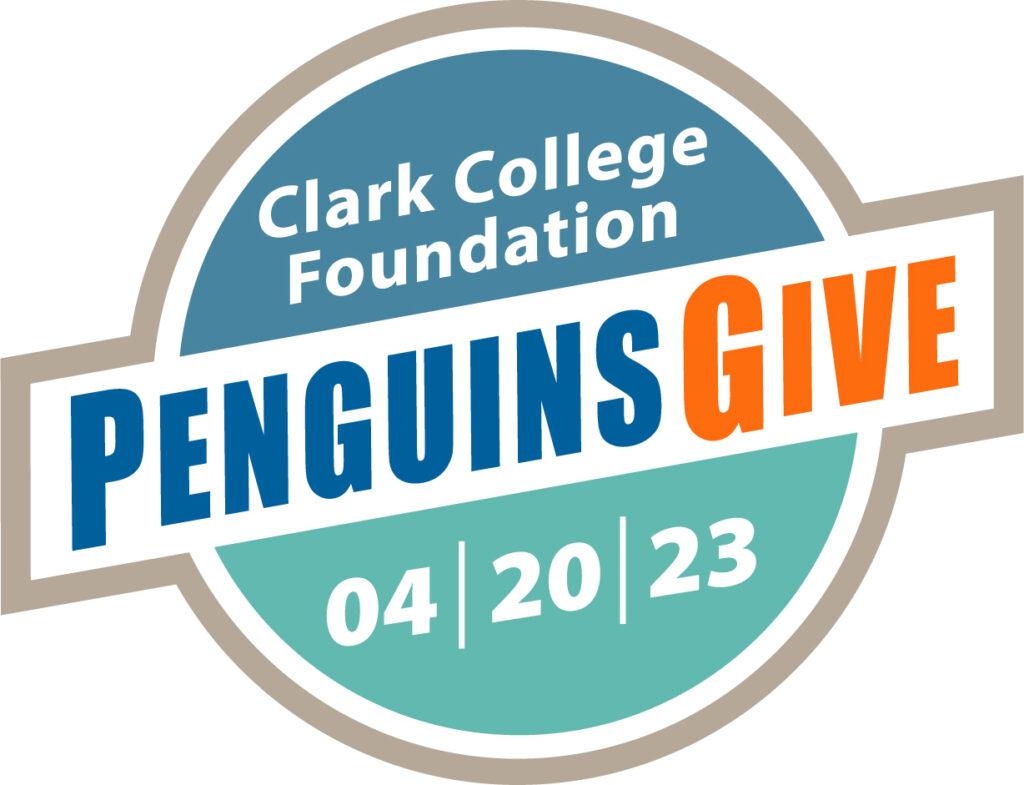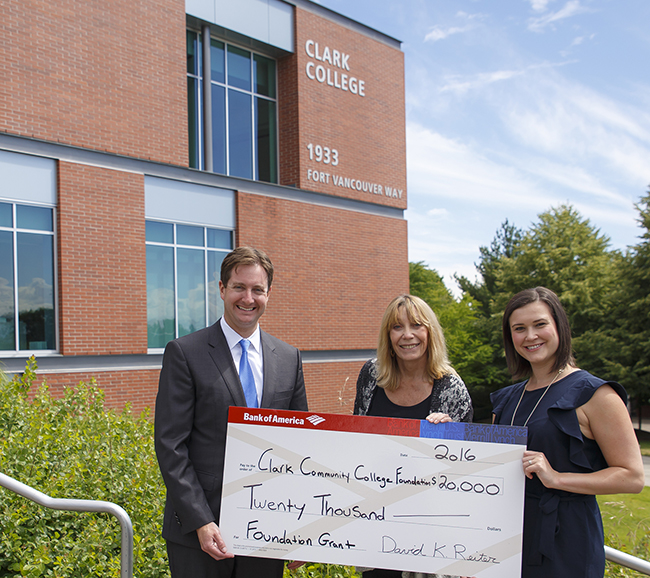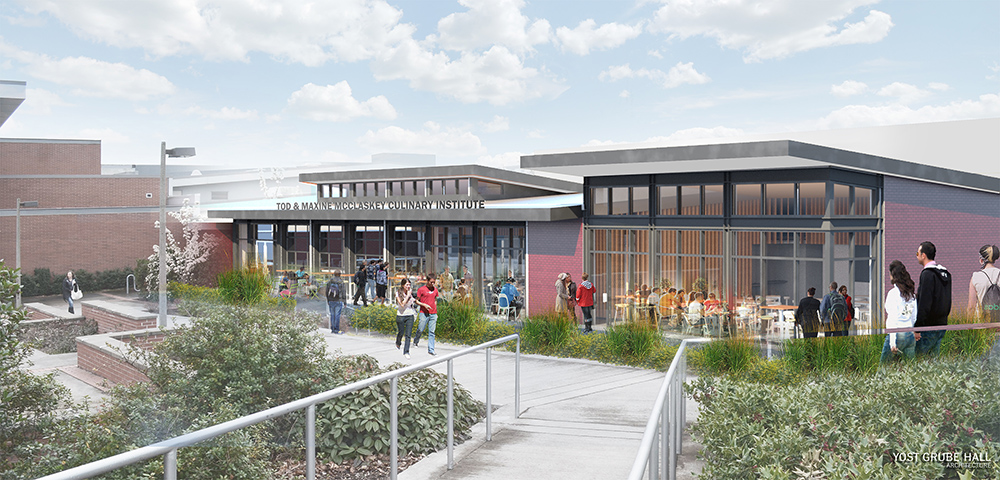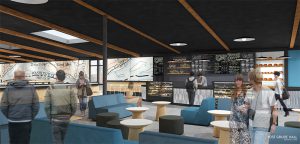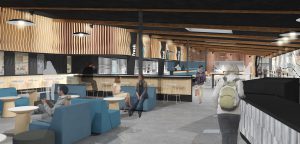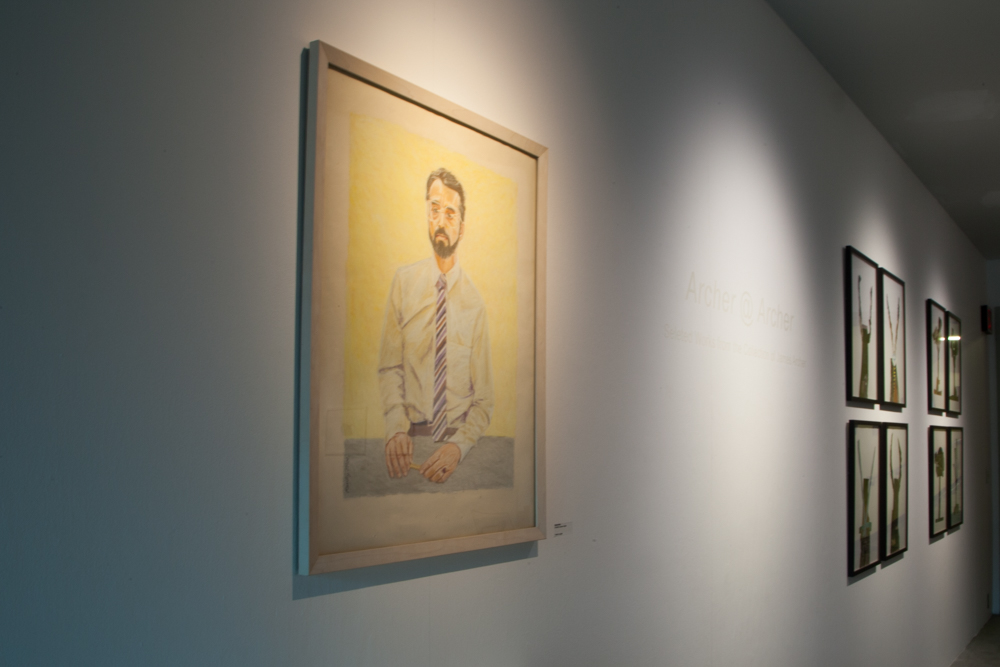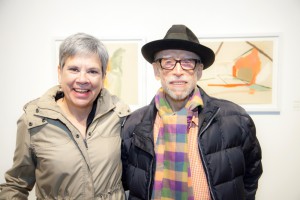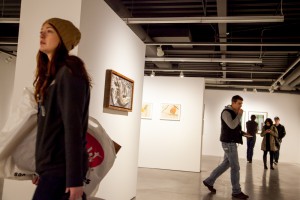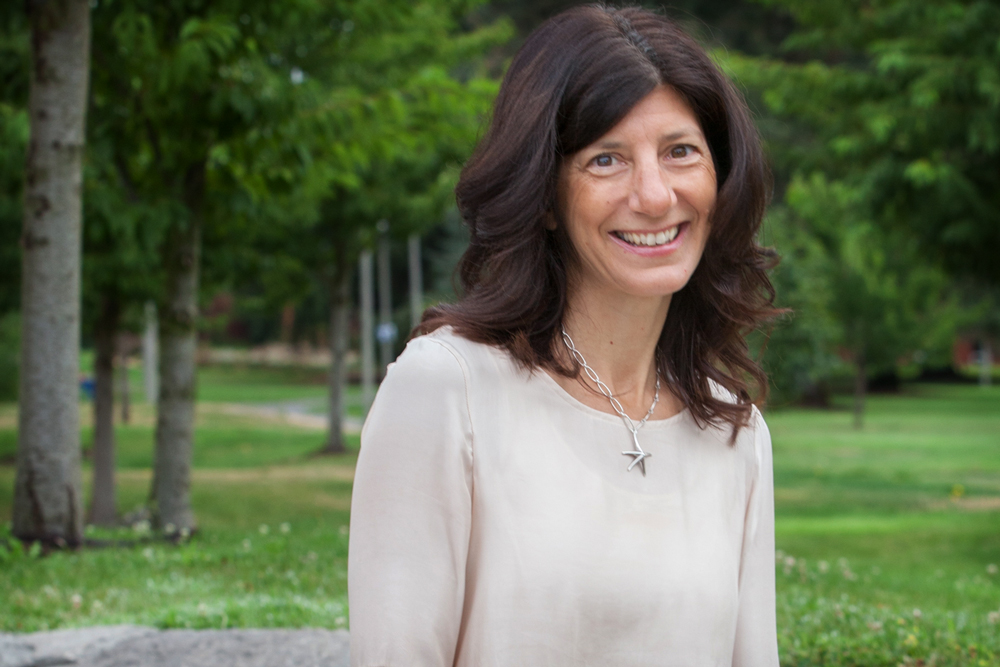Career Connections
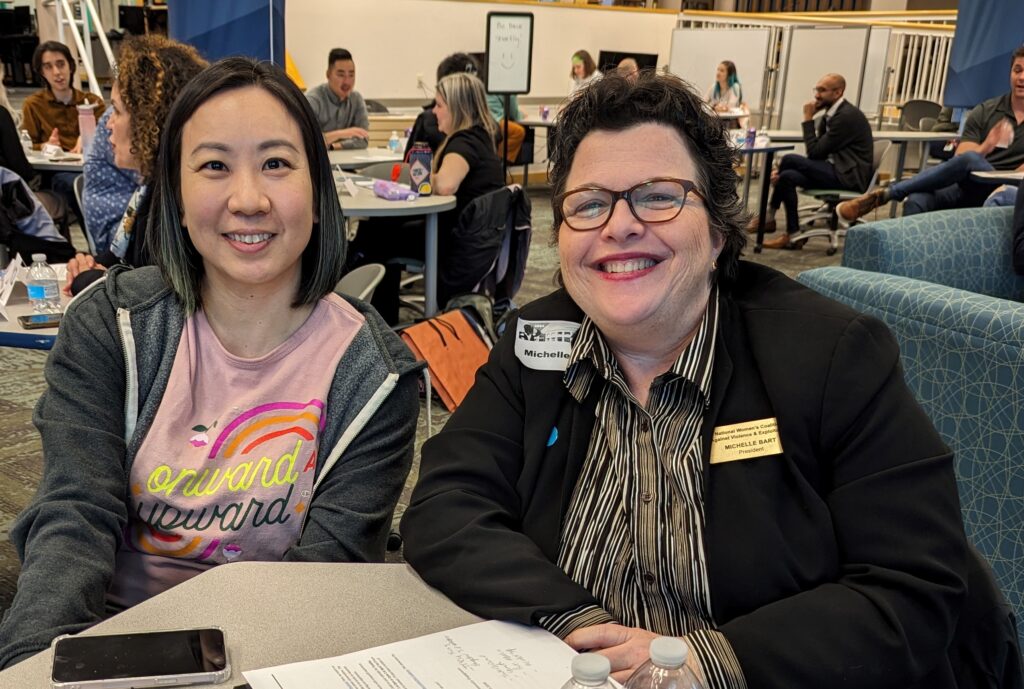
Seated at tables around Cannell Library, pairs of people were deep in conversation. At each table, one person was a Clark student. The other was an alum or community member working in the student’s prospective career.
More than 50 Clark students met face-to-face with alumni mentors and other professionals to find out more about their prospective careers during Clark College Foundation’s Check Out a Professional event on February 27. The event is designed to connect alumni and business partners with students for one-hour career conversations in Cannell Library.
The event’s organizer, Chandra Chase, associate vice president of Alumni Relations & Community Engagement at Clark College Foundation, said, “Our alumni and business partners look forward to this opportunity to connect with students. Often, they received critical career mentorship through family, friends, faculty, or internships and want to pay it forward.”
The Foundation reached out to alumni and other local professionals with this message: “This event is designed for you to have a one-on-one career conversation with students, aligned with your area of expertise. What will you talk about? Take yourself back to your student days. What career information should you have known?”

Seated with a digital media arts student, Alan Hwang (pictured right), chief executive officer at Riff Agency, recognized the value of networking and volunteered for the event. Hwang earned an associate degree in business at Clark in 2013.
“When I was starting in my career, the most impactful brain gain I had was through 50+ cold emails to community leaders in a hope to gain some insight into what it takes to be successful over coffee,” said Hwang. “I’m a huge believer in hands-on, real-world learning. The Check Out a Pro event is a streamlined process for Clark College students to get that same impactful experience I had and gain some insight into the real world as they consider entering the workforce. This is extremely valuable experience and why I personally dedicate time—and will continue to dedicate the time—to this event.”
Connections made
- Sheila Davis of Fourth Plain Forward met with a student who is interested in working for a nonprofit organization.
- Katie Devlin, an attorney with the Washington State Attorney General, met with a political science student.
- Eric Olmsted, president of OnLine Support and member of the college’s Cybersecurity / IT advisory committee met with a cybersecurity student.
- Mike Pyszka, a civil engineer with Parametrix who is working on the Interstate Bridge Replacement Program, connected with a civil engineering student.
- Manuel Galaviz from PeaceHealth Medical Center used his laptop to show a healthcare website to a Health Information Management student.
- Jasmine Tolbert of YWCA Clark County met with a student about a career in counseling. The student’s young son sat quietly wearing headphones and watching a cartoon on a tablet.
- PeaceHealth nurse Sofia Cartagena and retired Kaiser Permanente physician Dr. Rebecca Hoffman met with nursing students.
A first-year psychology student sat at a table with Michelle Bart, president and founder of NWCAVE (National Women’s Coalition Against Violence and Exploitation). The student’s professor had suggested she earn her advocate certification. Not only did Bart tell the student about a 40-hour advocate training her organization was hosting in Vancouver the next week, but she offered her a scholarship to participate at no charge. It was exactly the certification the student needed.
Connection made. Opportunity gained.
Throughout the library, alumni and other professionals connected with students in similar meaningful conversations.
“Libraries are about connecting folks with the information they need, in whatever format that might be,” said Julie Austad, dean of Clark Libraries and Academic Success Services. “Sometimes it’s a book or an article. At this event, it was people. It was alumni. It was folks in the community who could relate to our students and talk about their experience getting into their chosen career.”
Check Out a Professional has been an annual event, but Chandra Chase from the Foundation said, “In 2025, we’re hoping to expand to two times per year.”
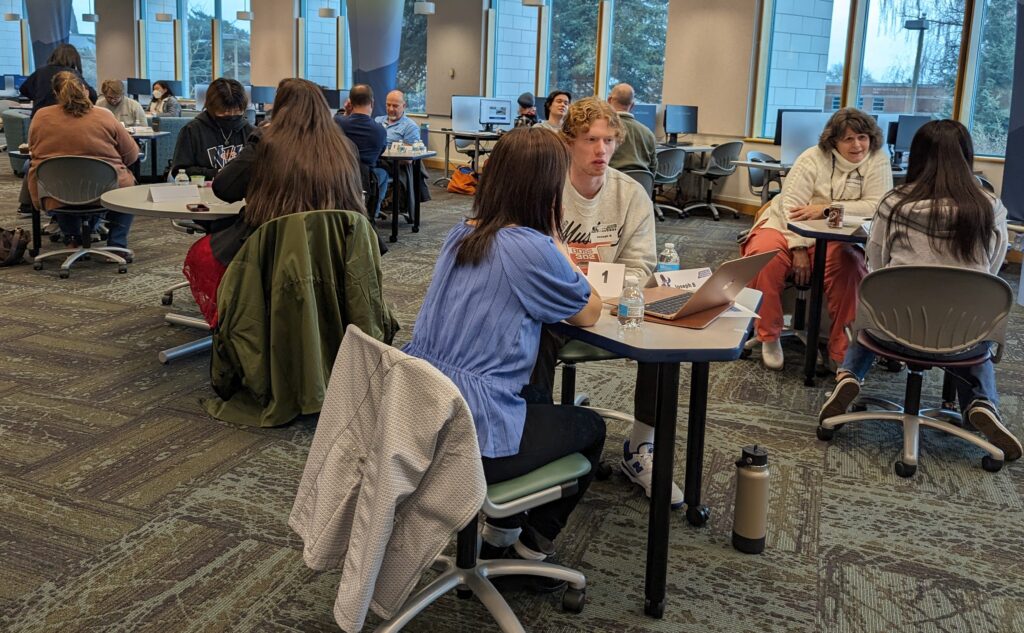
Check Out a Professional quick stats:
- Attendance: 55 students (more than double last year’s event)
- 55% first-generation college students
- Largest increase in student participation: Health care and STEM areas of study
Participating students are pursuing careers from accounting to computer science to mechanical engineering to web development and more.
Alumni and business participants included representatives from Bloom Collective, Clark Public Utilities, Dynamic Events, Edge Networks, Fourth Plain Forward, Kaiser Permanente, Legacy Salmon Creek Medical Center, LiveChannel, Mountain Crest Counseling Services, National Women’s Coalition Against Violence and Exploitation (NWCAVE), OnLine Support, Opsahl Dawson, PeaceHealth Southwest Medical Center, Riff Creative, Schwabe, Williamson & Wyatt, TSMC (also known as Taiwan Semiconductor Manufacturing Company), The Vancouver Clinic, Washington State Office of the Attorney General, Webfor, Workforce Southwest Washington, YWCA Clark County, and ZP Productions.
Careers represented included animator, attorney, counselor, dental hygienist, engineer, filmmaker, health information management, human resources/recruiting, information technology, marketing, nonprofit management, nurse, therapist, physical therapist, physician, systems analyst, and more. Learn more about the Foundation’s Check Out a Professional event.
Photos: Clark College/Susan Parrish
